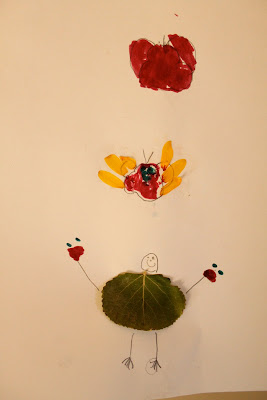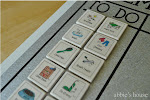One day after I had just finished teaching a class on family organization, a friend approached me and asked, "How did you come up with all of your ideas and chore chart system?" For lack of a better answer, I gave her my simple one-"frustration." I have found that if necessity is the mother of invention then frustration must be the mother of organization.
Managing a family of seven and having a strong desire to be organized along with not having great natural organizational skills can cause some frustration. I have learned to compensate with a lot of creativity and a lot of learning as much as I can from others. Over time, we have figured out ways to keep our family organized and on schedule even during the chaos.
This week we will be sharing lots of these ideas and details about family organization and chore systems. But for today, here are a few simple tips that we have learned along the way.
Family organization and chore charts systems:
1. Keep it Simple: There are a lot of family chore system ideas out there, but many of them are too complicated to keep up through real life. They work great for the first week or two, but then as a change in a work schedule, a new soccer season, strep throat for the whole family or a new baby comes along, they are just too hard to keep up.
2. Start While Your Kids are Young: Children who can walk and talk can do simple chores and begin to care for themselves. Toddlers and preschool age children especially love to feel involved and helpful, but this is also true for older children. Use their enthusiasm to do things for themselves, to teach them responsibility.
3. Spell it Out: Kids do not really know what it means when we as parents say, "Get ready to go today" or "Go clean your room". They work much better with small assignments. Give them some sort of list of what they need to do in the morning and a list of things that they need to do to clean their room. Pictures may be helpful on the lists. Even if they are readers, pictures are just more fun.
4. Work as a Team: Give kids chores when they are young, but work along with them and train them as you go. Working together is great one on one time and it will all pay off as they learn to do jobs well on their own. Rotate chores and give everyone a turn. This helps everyone to feel that things are fair and that your family works together as a team. This feeling is important in families.
5. Let Kids be Responsible for Their Choices: Help children have a good understanding of what their chores are and what happens when they complete or do not complete their chores. Give them some simple and positive incentives to finish.
6. Use Creativity, Humor, and Fun: It is what kids (okay all of us) respond to well. Use these things in abundance and any job is more fun.
The chart above is protected by a copyright and is not to be copied for commercial use.


 Bundt pans work great because they already have the hole in the middle. If not you can place a paper cup or a tin can in the middle of the container weighted with stones. I placed mine just outside our back door over night. When you are ready to take it out let it sit at room temperature for a few minutes and then soak the bottom of the pan in warm water for a few minutes. Hang the wreath with a ribbon or place a votive candle in the middle for a festive center piece or a outside ice luminary.
Bundt pans work great because they already have the hole in the middle. If not you can place a paper cup or a tin can in the middle of the container weighted with stones. I placed mine just outside our back door over night. When you are ready to take it out let it sit at room temperature for a few minutes and then soak the bottom of the pan in warm water for a few minutes. Hang the wreath with a ribbon or place a votive candle in the middle for a festive center piece or a outside ice luminary. 






















































